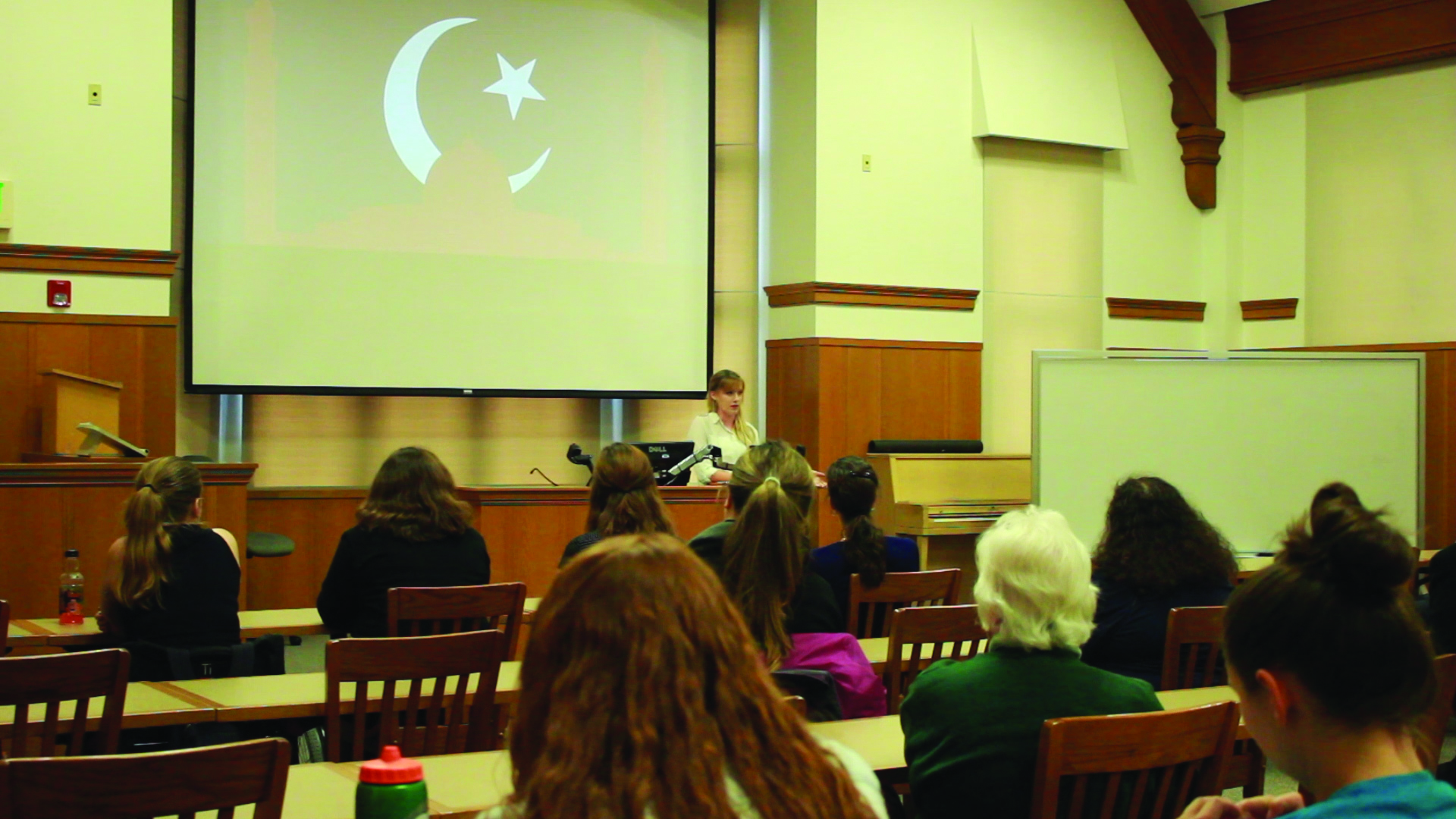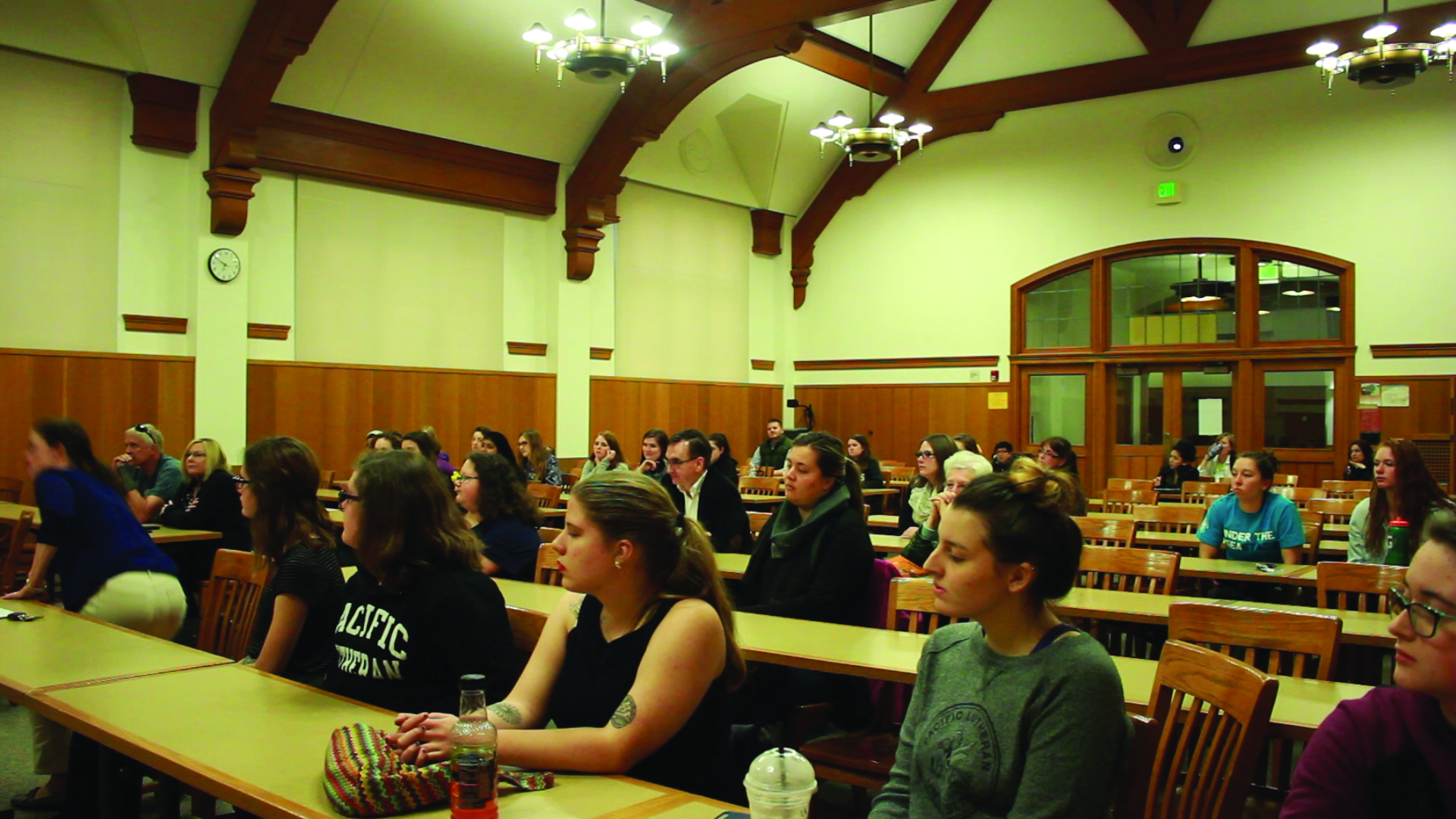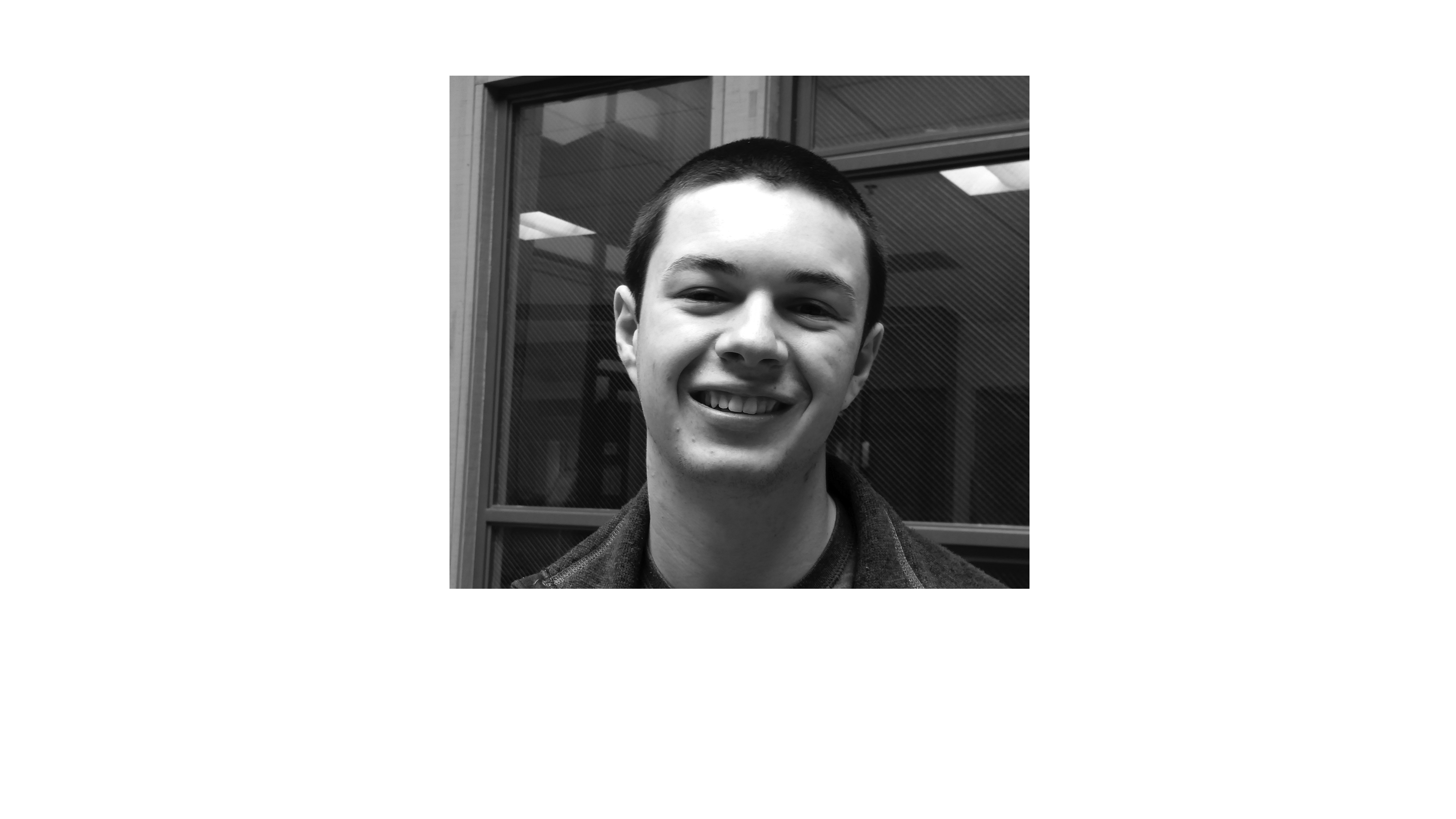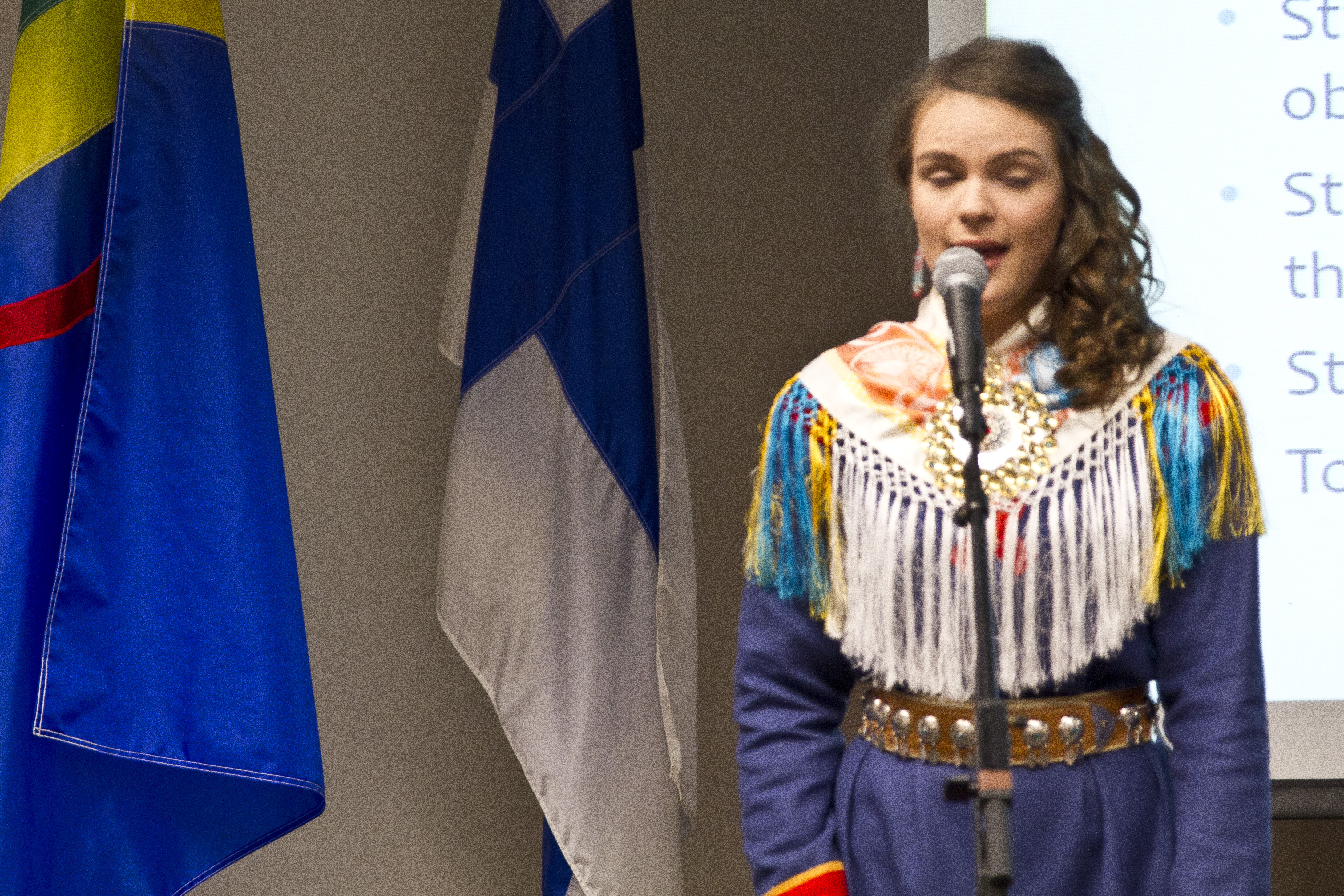GENNY BOOTS; Mast TV General Manager: bootsgj@plu.edu
JuliAnne Rose returned to her roots and presented again to Pacific Lutheran University students on one of her distinguishing projects from her time as an undergraduate student PLU.
On April 26, a screening of the 2013 MediaLab documentary “Islamaphobia” was held in Xavier. The screening was followed by a conversation with Rose, the executive producer of the project.

Rose graduated in 2013 from the global studies and political science departments. During her time at PLU she worked on the documentary, which examined the links between public perception of Islam and the media portrayal. The documentary especially focused on using comedy as a means to break down barriers and increase understanding of the politicized religion.
Rose is now pursuing a Masters degree, looking at Islamaphobia and the work she started at PLU, at the University of Melbourne.
The PLU community talked with Rose about their own experience with Islamaphobia, in the media, the current political rhetoric and in their own lives. Students shared their stories being confronted about their hijab and questions about their religion.
ASHLEY FARRE; Guest Writer
With recent world occurrences and the infamatory words of certain presidential candidates, presenters thought it apt to show the documentary “Beyond Burkas and Bombers.”
Julianne Roads, recent graduate of PLU, produced the film about Islamophobia. After showing the film, Roads herself headed a discussion about Islamophobia.
In her current work towards her master’s degree in Australia, Roads focuses on the politics of Islamophobia and how the political rhetoric of the “Islamic enemy” contributed and continues to contribute to securitization. During the discussion, Roads gave some more information on the current state of Islamophobia in the United States and helped include the audience in the talk.
I was a bit surprised that I became emotionally involved in the topic. During the video, I became privy to some of the terrible things people say about Muslims—not only regular people but people in positions of power.
Even though I am not Muslim and do not know any Muslims, I was angry and sad.
I thought, “It’s stupid that Islamophobia is even a word.” I wondered why we can’t understand that just because Muslims have a different religion, that doesn’t make them monsters. They are just like us.
That’s something I could rant about for days. I have thought about the topic before, but this talk expanded my knowledge on the subject quite a bit.
I learned about liberal Islamophobia. While it is less obviously ignorant than some of what current conservative candidates have expressed, it’s still Islamophobia.
In short, with liberal Islamophobia, the enemy is still identified as Muslim, which propagates fear towards the group. This fear can be used to condone the use of force in foreign policy: securitization.
Road’s film also depicted the perspectives of American Muslims, which are often ignored in the media. I think one of the most important things that we discussed was how Islamophobia makes Muslims feel isolated from their government, which is exactly the opposite of what is ideal.
This talk can easily be related to the subject of appearance vs reality, which I have explored through my Topics in Literature class. Muslims are shown through a lens in the media that certainly does not represent how most of them are.
People who exhibit Islamophobia are actually a lot like Quixotic readers. They cannot separate the “fantasy” of Muslims as terrorists from the reality that they are just normal people.
Some people have been known to lash out at others for simply “looking Muslim,” showing a detrimental fixation on appearance sort of like the society in Northanger Abbey and like Victor Frankenstein.
One can also look at sentiments about ISIS like Frankenstein. Sometimes, the cause of the rise of ISIS seems to be portrayed as simply Islam. But as Roads pointed out in the discussion, the organization’s rise is in retaliation to political events in the region.
The attribution to Islam reminds me of how Victor avoids responsibility for his actions. Just as this is detrimental for Victor, seeing issues in the Middle East through a religious lens inhibits de-securitization.
This talk has expanded my understanding of how a focus on appearance is actually harmful. I was also able to apply what I know of Quixotic reading to a new, modern context.




















